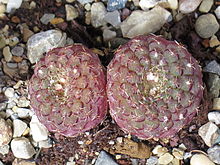
Frailea is a genus of globular to short cylindrical cacti native to South America. These species are cleistogamous. They were first classified in the genus Echinocactus.

The Cactoideae are the largest subfamily of the cactus family, Cactaceae. Around 80% of cactus species belong to this subfamily. As of August 2018, the internal classification of the family Cactaceae remained uncertain and subject to change. A classification incorporating many of the insights from the molecular studies was produced by Nyffeler and Eggli in 2010. Various revisions have been published since, e.g. to the tribe Hylocereeae and the tribe Echinocereeae. Classifications remained uncertain as of March 2019.
Pristichampsus is a non-diagnostic extinct genus of crocodylian from France and possibly also Kazakhstan that is part of the monotypic Pristichampsidae family. As the type species, Pristichampsus rollinatii, was based on insufficient material when described in 1831 and 1853, the taxonomic status of the genus is in doubt, and other species have been referred to other genera, primarily Boverisuchus.

Parodia buiningii is a rare species of cactus native to South America. It is a solitary spherical or oblate cactus only a few inches in height with long, yellow spines. It bears yellow flowers, and produces hairy fruit and black seeds. It is found surrounding the towns of Santana do Livramento, Brazil and Rivera, Uruguay.

Papaipema cataphracta, the burdock borer, is a moth of the family Noctuidae. It is found from Quebec and Maine to Florida, west to Louisiana, north to Saskatchewan.

Phyllodonta is a genus of moths in the family Geometridae described by Warren in 1894.

Gymnocalycium eurypleurum is a small "chin cactus" that is highly prized by cactus collectors and is known to be fairly easy to grow, albeit very slow It has been cultivated outside in latitudes as far north as Modesto, California. In the wild, the species is almost always solitary (non-clumping) and may grow in association with Frailea species. The species when grown in the greenhouse is also known for its fidelity to wild specimens. It is said to live in seasonally very dry habitat, clay soils between 6.8–7.2 pH, and maximum temperatures to 50 °C (122 °F). Gymnocalycium eurypleurum is an endemic specie from Paraguay.
Cochylis cataphracta is a species of moth of the family Tortricidae. It is found in Venezuela.

Notocacteae is a tribe of cacti belonging to the subfamily Cactoideae.
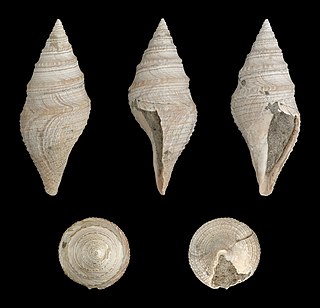
Bathytoma cataphracta is an extinct species of sea snail, a marine gastropod mollusk in the family Borsoniidae.

Frailea castanea is a species of Frailea found in Argentina, Brazil and Uruguay.
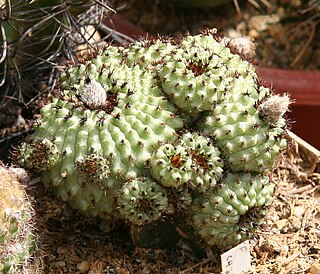
Frailea chiquitana is a species of Frailea from Bolivia.

Frailea curvispina is a species of Frailea from Brazil.
Frailea gracillima is a species of Frailea from Brazil, Paraguay, and Uruguay.
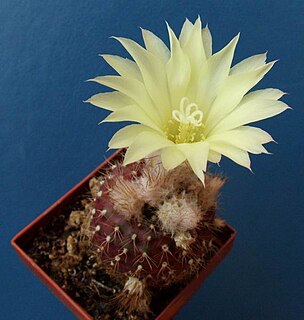
Frailea mammifera is a species of Frailea from Bolivia and Argentina.
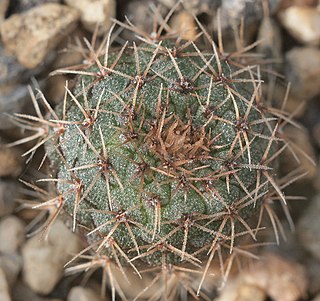
Frailea phaeodisca is a species of Frailea from Brazil and Uruguay.
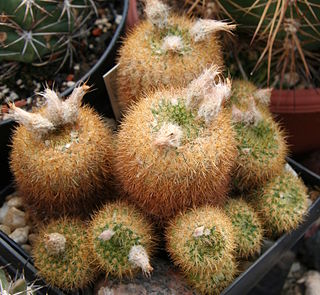
Frailea pumila is a species of Frailea from Brazil, Argentina, and Uruguay.
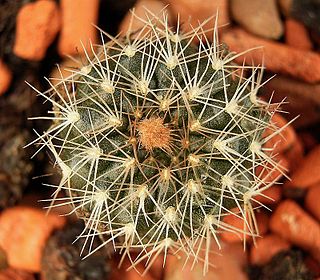
Frailea pygmaea is a species of Frailea from Bolivia, Argentina, and Uruguay.
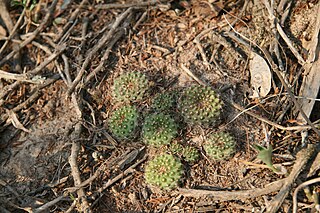
Frailea schilinzkyana is a species of Frailea from Brazil to Argentina.

Asaphodes cataphracta is a moth in the family Geometridae. It is endemic to New Zealand and is found in the South Island. This species prefers grassy or tussock covered mountain side slopes as habitat. The adults of this species are on the wing from December until March. The larvae of A. cataphracta is known to consume native mountain buttercups (Ranunculaceae).
